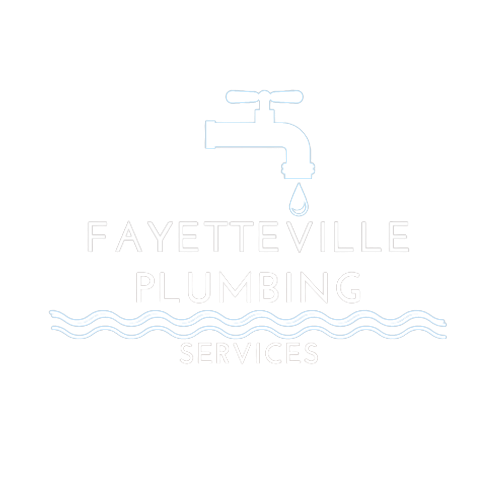Introduction
Your water heater quietly works every day to supply hot water throughout your home—but over time, sediment and minerals build up inside the tank. This buildup can cause inefficiency, loud noises, and even early system failure.
At Fayetteville Plumbing Services, we recommend flushing your water heater at least once a year to keep it in top condition. In this guide, we’ll explain how often to flush your tank, why it matters, and how professional maintenance can make the process quick and effective.
Why Flushing a Water Heater Is Important
When water is heated, minerals like calcium and magnesium naturally separate and settle at the bottom of the tank. Over time, this sediment layer grows thicker, creating several problems:
- Reduced efficiency: Sediment acts as insulation, forcing the burner to work harder and use more energy.
- Loud noises: Popping or rumbling sounds are caused by water trapped beneath sediment.
- Overheating: Sediment buildup causes uneven heating that can overwork the system.
- Corrosion and leaks: Sediment retains moisture, which accelerates rust and internal tank damage.
Flushing removes this buildup, restores efficiency, and helps extend the water heater’s lifespan.
How Often to Flush a Water Heater
Standard Recommendation:
For most households, flushing once every 12 months is sufficient. This keeps sediment from solidifying and maintains smooth operation.
Hard Water Areas:
If your home has hard water, which is common in many parts of Arkansas, flushing every 6 months may be necessary. Hard water contains high mineral content that accelerates buildup.
Low Usage Homes:
If you live alone or travel often, sediment builds up more slowly, but stagnant water can still cause corrosion. In these cases, flushing once every 18 months may be adequate.
Tankless Water Heaters:
Even though they don’t store water, tankless units still collect mineral scale. They should be flushed annually using a descaling solution to protect internal heating components.
Signs Your Water Heater Needs Flushing
Even if you can’t remember the last time your water heater was flushed, your system may be showing you signs that it’s overdue:
- Rumbling or banging noises during heating cycles
- Reduced hot water temperature or inconsistent performance
- Discolored or rusty water from faucets
- Higher energy bills from reduced efficiency
- Slow recovery time between hot water usage
If you notice one or more of these symptoms, it’s time to schedule a flush.
What Happens During a Professional Water Heater Flush
At Fayetteville Plumbing Services, we perform a complete, safe, and thorough flush that includes:
- Turning off power or gas supply for safety.
- Draining the tank completely using a hose connection.
- Flushing clean water through the tank to remove sediment.
- Inspecting the anode rod, pressure relief valve, and fittings for corrosion or wear.
- Refilling and testing the tank to ensure proper function and efficiency.
A professional flush ensures no sediment remains trapped inside the tank and confirms that your system is working at peak performance.
DIY vs. Professional Flushing
While homeowners can flush their own water heaters, it’s easy to overlook safety steps or miss hidden issues. Professional plumbers:
- Use high-flow equipment to fully remove sediment.
- Inspect critical components for leaks or corrosion.
- Check gas and pressure settings for safety compliance.
- Identify early warning signs that might go unnoticed in a DIY approach.
DIY flushing is fine for routine upkeep, but professional service once a year provides added protection and peace of mind.
Benefits of Regular Water Heater Flushing
Keeping up with flushing offers several long-term benefits:
- Energy savings: A clean tank heats water more efficiently, reducing gas or electric bills.
- Longer lifespan: Regular maintenance can add years to your heater’s life.
- Quieter operation: Eliminates popping or banging caused by trapped sediment.
- Cleaner water: Reduces rust, discoloration, and odor.
- Lower repair costs: Prevents overheating and tank corrosion.
Preventive maintenance is always cheaper than replacing a failed water heater prematurely.
How Fayetteville Plumbing Services Can Help
Our licensed plumbers provide expert water heater flushing and inspection services for both gas and electric systems. We also offer annual maintenance programs to ensure your heater runs efficiently all year long.
During your service, we’ll:
- Flush and clean the tank thoroughly
- Inspect for leaks, rust, or pressure issues
- Test the thermostat and gas burner for accuracy
- Provide honest recommendations for repairs or upgrades
We treat every system as if it were our own, ensuring reliability, safety, and long-term performance.
Conclusion
You should flush your water heater at least once a year, or every 6 months in hard water areas, to prevent sediment buildup and costly damage. Routine maintenance not only improves efficiency but also extends the life of your heater.
If it’s been over a year since your last flush, call Fayetteville Plumbing Services today. Our professional team will clean, inspect, and tune your water heater so it continues delivering reliable hot water for years to come.


